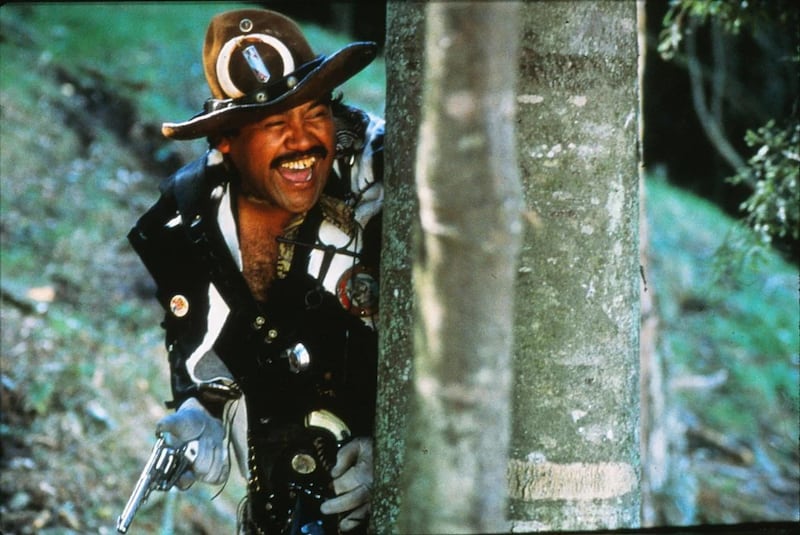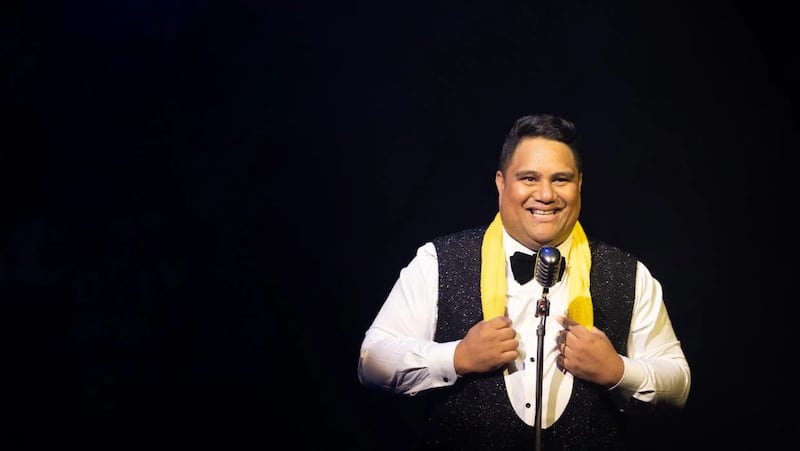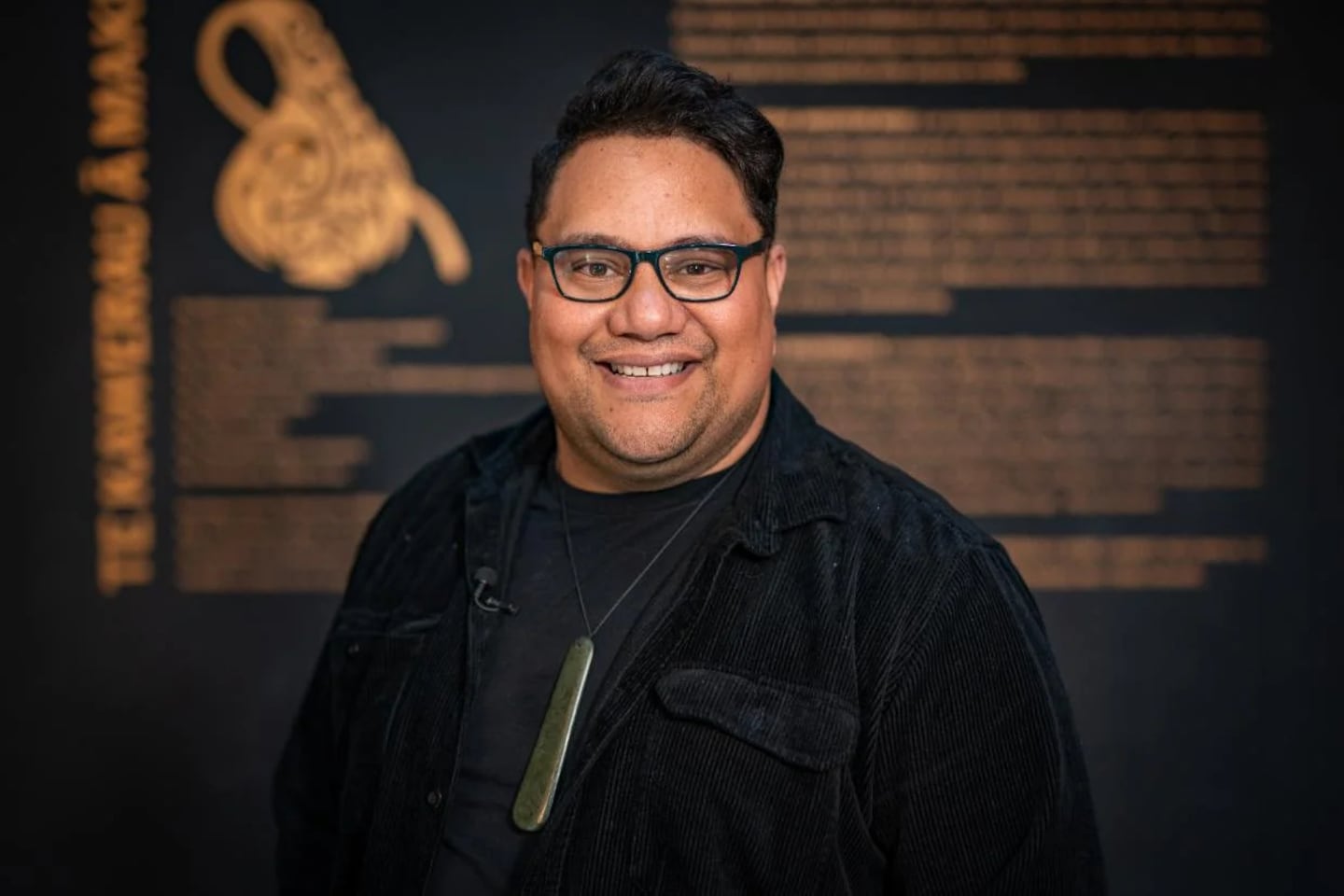This article was first published by Stuff.
When Rutene Spooner was a boy, he and his whānau would gather around the TV, sometimes even while a party was going on, to watch old VHS tapes of Billy T James.
Widely regarded as one of New Zealand’s greatest entertainers, Billy T could do it all - sing, dance, act - but it’s his personal brand of comedy that left an indelible mark on the Kiwi psyche. He taught us how to laugh at ourselves.
But while the love for one of New Zealand’s greatest entertainers still runs strong, Spooner acknowledges there are some complexities to the comedy the late James brought to the table.
Much like the VHS tapes young Rutene used to watch with his whānau, James’s comedy was a product of his time, says Spooner.
Now with his own cabaret show, Be Like Billy?, Spooner explores the path James forged for other Māori entertainers, the relevancy of his work in 2024, and his own relationship with his childhood hero.
Be Like Billy? is a solo show, the question mark on the title representing whether Spooner wants to be like James, or whether he just wants to follow his pathway.
Spooner (Ngāti Porou, Ngāruahine, Ngāti Kahungunu) is a fully-rounded entertainer in his own right; the Modern Māori Quartet member can sing, act, play the piano and make audiences laugh. He also used to impersonate Billy T James while working in corporate entertainment.
However, Be Like Billy?, as Spooner says, is not a direct impersonation of the late entertainer, who died before Spooner was born.
The Billy T he portrays was built from what he saw on those VHS tapes growing up, and what his whānau said about his work. The show raises the question of whether he is chasing Billy T James or rather the pathway he forged.
“So I speak directly to the audience, share directly to the audience ... my investigation of what it means to become a Māori entertainer by following the footsteps of Billy T James,” he says.
“It tussles with it as well, it really tussles with the relevance of the content while searching the new pathway that could never have, could never be, without people like Billy and everyone else in that Maori show-band era.”
Spooner sees Billy T’s comedy as a reflection of Aotearoa at that time. What worked in comedy back then would likely land differently today, he says, because the world has changed a lot in 40 years.
“Billy and I come from different backgrounds. I was lucky. I’m a kura kaupapa, kōhanga reo kid,” he says.
James was born in 1948, decades before the kōhanga movement began.
“So sometimes, to perform that material as it stands, really kind of rubs against the foundation that I was built on. There are some questions around the relevancy of his material.
“However, I think as I’ve discovered it, as I’ve researched and really sat with his words, and I say, literally sat with his words, his interviews, the man was a product of his time.”
He received guidance for his show from James’s daughter, Cherie James.
“When I approached her, I said I had just become a father. And so I knew the importance of that relationship,” he said.
“I understand there’s some, you know, there has been some controversy in the past with his representation by other people, with his material... and so I wanted it to be very clear that it is my version and it’s my understanding, my interpretation of his legacy.”
Billy T James was renowned not just as a comedian - he was also an accomplished singer, musician and actor. In 1986, James won a GOFTA award for his role as the Tainuia Kid in Came a Hot Friday.

His musical talents were highly regarded too, with many of his songs released in compilation albums, even after his death.
These are talents that Spooner shares. The entertainer is a member of the successful Modern Māori Quartet, he cut his teeth in the industry by way of a minor role in Whale Rider, acted in the Australian production of Jersey Boys, and continues to write his own shows, including Be Like Billy?
As for Spooner’s favourite Billy T sketch, it’s the Lands for Bags ad. The skit is a play on a 1981 TV commercial that featured people in the street, using the lines: “Where did I get my bag? Lands for bags, of course.”
The skit parodies the slogan, and shows James in the street, backpack over his shoulder, saying, with his trademark giggle: “Where did I get my bag? I pinched it.”
In today’s context, it might not work, it’s another of those “products of its time”. Spooner says it brought two worlds, a Māori world and a Pākehā world, together. By drawing on old racist stereotypes, what James created was more like a collision - a collision that forced Kiwis to confront their sometimes blinkered beliefs. And laughter was the sugar that helped the medicine go down.

James was “pushing the conversation” of how Māori are portrayed in mainstream media, by just “being Billy”, Spooner says.
“I don’t think he would be doing that material now, or he would advance it, because he was advanced for his time, in my opinion.
“So what I’ve taken away from learning through the show is how to use his experiences as a spark in whatever I do, in whatever I make, in the conversations I speak to.”
Spooner says Māori entertainment has come a long way, and most, if not all, continue to push the conversation that Billy T James started.
“There’s some great entertainers coming out, like online content creators who are doing a similar thing, but in a different world, you know. Yeah, it’s very exciting.”
Be like Billy? embarks on a nationwide tour, starting with Rotorua’s Sir Howard Morrison Centre on September 14. More information, and tickets can be found at www.pannz.org.nz.
- Stuff


